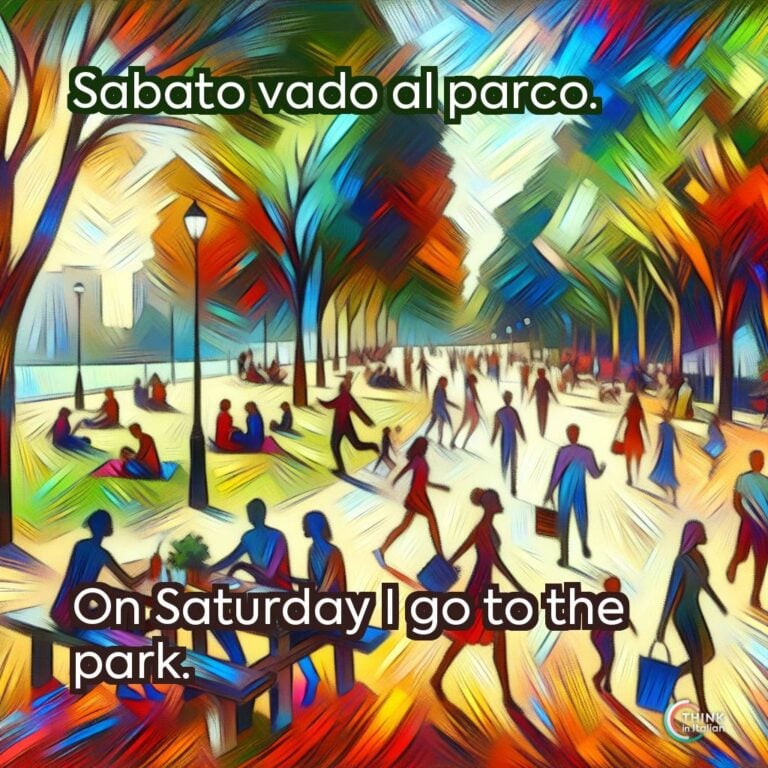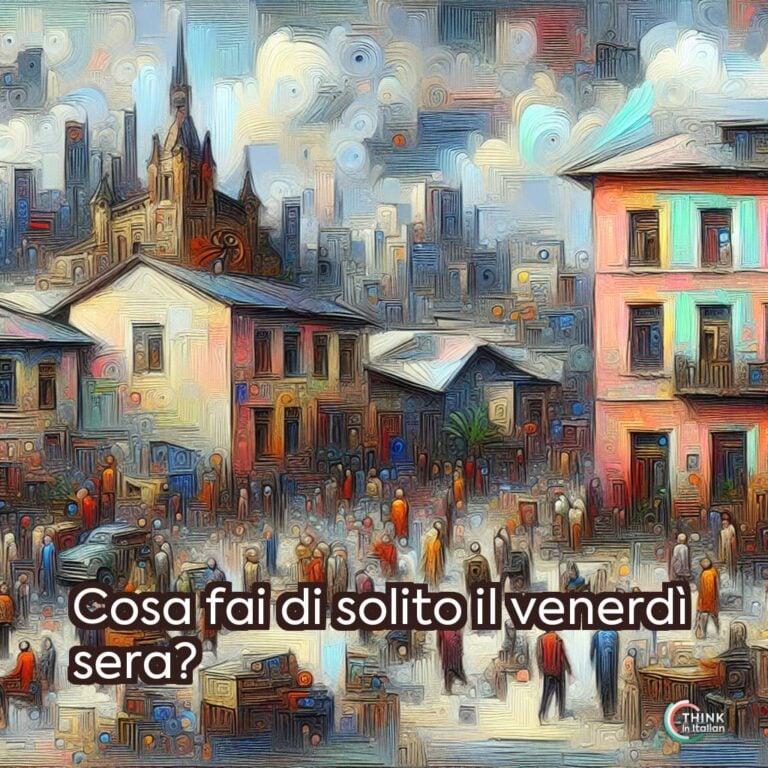The Days of the Week in Italian
Learning the days of the week in Italian is one of those simple but essential building blocks to improving your Italian, but be ready: learning their names will not be enough to properly master the language. You will need to understand how to use them grammatically.
In fact, when you use the days of the week in Italian, you need to consider several key grammatical rules regarding prepositions, articles, and pluralization. This will also allow you to properly say the date in Italian.
Here I will list you all these pieces of information, but first, let me start with their names and some interesting pills of linguistics, to introduce you to the history of the Italian language.
First of all, notice that all the days from Monday to Friday come from two Latin words: one is the reference, while the other is always dies, “day” in Latin. Therefore, these five weekdays in Italian are basically “the day of…”.
- Lunedì (Monday), from Lunae (Moon), luna in Italian. Notice that Italian weeks begin on Monday, not Sunday, which I actually find so much more logical: you get through the whole weekend, rest, and then start fresh on Monday.
- Martedì (Tuesday), from Martis (Mars), Marte in Italian, the Roman god of war, and many Romance languages name Tuesday after him.
- Mercoledì (Wednesday), from Mercurii (Mercury), Mercurio in Italian, the god of communication, trade, and travel.
- Giovedì (Thursday), from Jovis (Jupiter), Giove in Italian, the king of the Roman gods.
- Venerdì (Friday), from Veneris, (Venus), Venere in Italian, the goddess of love.
- Sabato (Saturday), from Sabbatum, which in turn comes from the Hebrew Shabbat. The transition from Hebrew to Latin and then Italian reflects a cross-linguistic influence. The concept of the Sabbath was adopted by Christian cultures and entered common use in Romance languages.
- Domenica (Sunday), from Dies Dominica (the Lord’s day). Previously, it was Solis dies (day of the Sun), which some other languages still preserve, such as “Sunday” in English. The shift to Dominica reflects the Christianization of the Roman Empire.
How to use the Days of the Week in Italian
No Preposition or Article for Specific Dates
When referring to activities that occur on a specific day, Italian does not use any preposition, unlike English. The day of the week stands alone:
Vado al cinema lunedì.
I’m going to the cinema on Monday.
Lavoro martedì.
I work on Tuesday.
Definite Article for Regular Events
When referring to events that occur regularly on a certain day, you must use the definite article il before the day of the week. We use the masculine singular article because it refers to giorno (day), except for domenica that is feminine.
This use translates to something like “every” in English:
Vado in chiesa la domenica.
I go to the church on Sundays/every Sunday.
Abbiamo una riunione il venerdì.
We have a meeting on Fridays/every Friday.
Pluralization of Days for Regular Events
In some informal contexts, the days of the week can also be used in the plural form to express regular, recurring events. However, this is less common and mainly heard in spoken language:
Vado in palestra i lunedì.
I go to the gym on Mondays.
Le lezioni sono i giovedì.
Classes are on Thursdays.
The form of all days of the week remains the same when pluralized, except for domenica, which can be pluralized in domeniche. However, remember that this is a very colloquial use.
Preposition “Da” for Period of Time
When talking about something that started or will start on a certain day and continue into the future, we use the preposition da (from/since):
Inizio il corso da lunedì.
I’m starting the course from Monday.
Sono occupato da martedì.
I’ve been busy since Tuesday.
Da establishes a starting point in time and is often used when referring to ongoing events or actions.
“A” and “Fino a” for Time Ranges
To express actions that happen from one day to another, we use the preposition da (from) in combination with the preposition a (to) or the expression fino a (until):
Lavoro da lunedì a venerdì.
I work from Monday to Friday.
Sono in vacanza da sabato fino a martedì.
I’m on vacation from Saturday until Tuesday.
Other Words to Express Days of the Week
As you might wonder, there are also other expressions you can use to refer to the days of the week. Here, I listed the most common ones. Of course, most of them coincide with the Italian adverbs of time:
- ieri: yesterday
Ieri era sabato.
Yesterday was Saturday.
- oggi: today
Oggi è domenica.
Today is Sunday.
- domani: tomorrow
Domani è lunedì.
Tomorrow is Monday.
- dopodomani: the day after tomorrow
Martedì non è domani, ma dopodomani.
Tuesday is not tomorrow, but the day after tomorrow.
- il fine settimana: the weekend
Cosa farai questo fine settimana?
What will you do this weekend?
Lately, instead of fine settimana, many young people also say il weekend.
Cos’hai fatto questo fine settimana? – Cos’hai fatto questo weekend?
What did you do this weekend?






